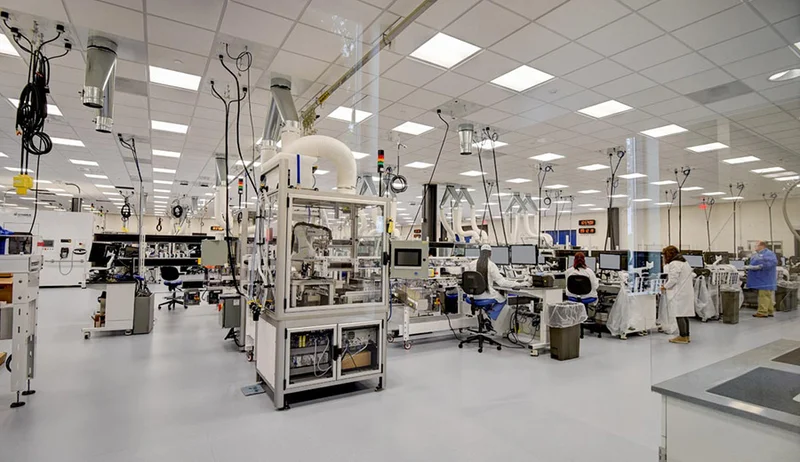Article Directory
Generated Title: Abbott Buys Exact Sciences: A $23 Billion Bet on Hope or Hype?
Abbott's acquisition of Exact Sciences for a cool $23 billion is making waves, but let's dial down the excitement and look at what this deal really means. Exact Sciences, best known for its Cologuard colorectal cancer screening test, now falls under Abbott's wing, expanding Abbott's reach into the cancer diagnostics market. (A market Abbott clearly sees as ripe for growth.) The stated rationale? Abbott wants a bigger piece of the $60 billion U.S. cancer screening and precision oncology diagnostics segment.
The Financial Fine Print
Exact Sciences shareholders are set to receive $105 per share. Abbott also expects Exact Sciences to rake in over $3 billion in revenue this year, boosting Abbott's total diagnostics sales to over $12 billion annually post-acquisition. Sounds rosy, right? But consider this: Exact Sciences also carries an estimated $1.8 billion in debt, which Abbott is absorbing.
Abbott is clearly betting on future growth, with CEO Robert Ford stating that the move reflects a long-term view of medical and clinical needs. He also emphasized that this acquisition will be immediately accretive to Abbott's revenue growth and gross margin. But how realistic is this projection? Exact Sciences laid off 4% of its workforce earlier this year, including 200 Wisconsin-based employees. So, while the top line might look attractive, there were signs of internal struggles. I’ve looked at hundreds of these filings and these layoffs don’t usually signal a company about to explode with profitability.
The Madison Connection
Exact Sciences has a significant presence in Madison, Wisconsin, with about half of its 7,000 employees based there. The company moved its headquarters to Madison in 2009, and Abbott assures that Exact Sciences will maintain its Madison presence after the acquisition. Greater Madison Chamber of Commerce President Zach Brandon sees this as a validation of the local talent pool, highlighting that Exact Sciences' growth from a two-person team to a 7,000-employee company is partly due to its Madison base. Madison’s Exact Sciences will be acquired by Abbott health care company.
But here's a question that isn't being asked enough: Will Abbott truly maintain Exact Sciences' Madison presence in the long term, or will there be gradual consolidation and eventual relocation of key functions to Abbott's Illinois headquarters? Companies often make promises during acquisitions, but the reality can shift as integration progresses.

The Human Element
Exact Sciences CEO Kevin Conroy will remain in an advisory role to support the transition. In a video, Conroy emphasized the shared Midwestern values and commitment to Wisconsin. (He even noted that Abbott's headquarters is only 10 miles south of the Wisconsin border.) He also highlighted the potential for expanding Exact Sciences' reach globally, leveraging Abbott's existing network to serve 2 billion patients annually.
This is where the narrative gets a little too polished. While shared values and geographic proximity are nice sentiments, they don't guarantee a smooth integration or sustained innovation. The success of this acquisition hinges on how well Abbott can integrate Exact Sciences' culture and talent while also driving operational efficiencies.
Sector-Defining or Overhyped?
Leerink Partners analyst Puneet Souda calls the transaction a "sector-defining event" and a positive for the entire diagnostics sector. TD Cowen analyst Joshua Jennings suggests the acquisition could revitalize Abbott's diagnostics business and potentially return the segment to pre-pandemic growth rates. Abbott to acquire Exact Sciences for about $21B.
These are optimistic takes, but they rely on several assumptions: that the cancer screening market will continue to grow rapidly, that Exact Sciences' products will maintain their market share, and that Abbott will successfully integrate Exact Sciences without disrupting its innovation pipeline. The acquisition cost was substantial (reported at $23 billion), and the pressure to deliver returns will be immense.
The Price of Hope: Justified or Inflated?
Ultimately, Abbott's acquisition of Exact Sciences represents a massive bet on the future of cancer diagnostics. Whether it pays off depends on factors both within and beyond Abbott's control. While the potential for growth and innovation is undeniable, the financial burden and integration challenges are significant. This deal isn't just about numbers; it's about navigating the complexities of a rapidly evolving healthcare landscape. The market will decide if that $23 billion was an investment or an overpayment.
